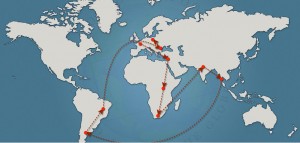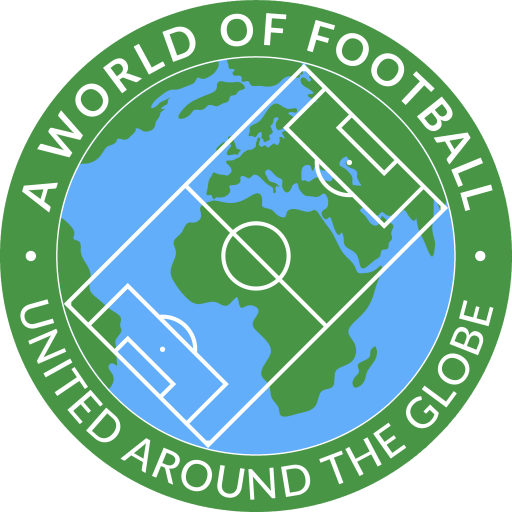
South Africa
The association Whizz Kids United was founded in response to the high numbers of HIV infection amongst the youth in the province of KwaZulu-Natal. According to the association, it is easier to send a message to children and to educate them when they are motivated and when the learning methods are appropriate and in a language which is appealing to children. This is why Whizz Kids United has chosen football to make kids aware of HIV, because of its amazing power to touch and speak to all of them.
Capital: Pretoria
Population: 50.590.000
FIFA ranking: 53
Estimated number of players: 4.540.410
Clubs: 900
Rwanda
The ethnic groups of Rwanda today still struggle with the legacy of the genocide in 1994. In the search for justice and peaceful coexistence, Espérance bridges the ethnic divides of Rwanda through education and social programmes such as Football for Peace and Football Forum Theatre. The organisation uses football not only to reconcile differences within the population, but also to raise awareness of dire issues that face young people and their communities.
Capital: Kigali
Population: 11.055.976
FIFA ranking: 106
Estimated number of players: 386.400
Clubs: 110
Israel/Palestine
The Peres Center For Peace Football Schools initiative encourages reconciliation between Palestinian and Israeli children from disadvantaged communities through a programme of sport training, peace education instruction and social activities. This programme imparts the values of peace and understanding, encourages acceptance of cultural differences, and breaks down stereotypes.
Capital: Jerusalem
Population: 7.740.900
FIFA ranking: 37
Estimated number of players: 283.866
Clubs: 290
Argentina
Boca Juniors is one of the biggest teams in South America. Invested in many social activities in its popular neighborhood of la Boca in Buenos Aires, the club often appears to be more than just a football team for its numerous « socios ». A World of Football’s documentary will integrate this particular atmosphere and show how a community can develop and live along one of the world’s most important football institution.
Capital: Buenos Aires
Population: 41.157.348
FIFA ranking: 10
Estimated number of players: 2.658.811
Clubs: 3377
Brazil
Our chronicle will be devoted to the “Centro de Referência da Juventude” or “CRJ”. This Center is a Rio de Janeiro State initiative and offers sports activities, coaching and vocational training in the favelas all around the “City of God”. The program is supervised by a new form of security and police re-deployment, through the Police Pacification Units (abbreviated in Portuguese as “UPP”).
Capital: Brasilia
Population: 192.376.496
FIFA ranking: 6
Estimated number of players: 13.197.733
Clubs: 29.208
India
In one of the poorest areas on earth, the Second Sight girls Hospital struggles to eradicate cataract blindness (listed amongst the Ten Best Health Interventions to Reduce Poverty). In the past few years a football club has developed next to the hospital as this is the sports the girls showed they enjoyed playing. Today, both institutions have a symbiotic existence. Both have grown organically from the impoverished community. And they both have the solid backing of all in that community. The benefits from this symbiotic existence are many: health, emancipating girls, tackling underage wedding by offering girls an alternative to poverty.
Capital: New Delhi
Population: 1.210.000.000
FIFA ranking: 162
Estimated number of players: 20.587.900
Clubs: 6540
Thailand
The Panyee Island is located on the south coast of Thailand. There are only around 800 families living there, and everyone knows each other very well. They form a small Muslim community which lives mainly thanks to their fishing activities. On this floating village, space is limited: it only takes 30 minutes on foot to cross the island. Nevertheless, one school has built a real football pitch. Indeed, at 4:30 pm, it’s football time on the island! People start gathering around the football pitch. Football is everywhere and acts as a strong social driver! We want to discover and understand the motivations, the barriers and the benefits in building this amazing floating football club. We want to discover and share this surprising story.
Capital: Bangkok
Population: 65.543.298
FIFA ranking: 132
Estimated number of players: 1.298.000
Clubs: 150
Ukraine/Poland
Our world tour will come to end at the UEFA EURO 2012 which takes place in Poland and Ukraine. The organization of this major international competition represents a realchallenge for the two countries who are more than willing to prove their ability to succeed. For us it will be an ideal opportunity to look at the two faces of football: the worldwide dominating “media football” and its local and small scale counterpart. It will be time to answer some questions like: what is the rightful place of football in our society: is it a leisure activity, or a business, a social vector? Or all of these at the same time… ?
Capital: Kiev/ Warsaw
Population: 45.134.707/ 38.441.588
FIFA ranking: 55/66
Estimated number of players: 2.273.017/ 2.000.264
Clubs: n.a./ 5.891
Belgium
The organization ‘VoetbalKraks’, in Bruges, offers the opportunity to children suffering from autism to play football together and to open out through sport. Apart from the practice of football, the kids also learn other useful things, such as -for instance- the importance of having a healthy diet.
Capital: Brussels
Population: 11.007.020
FIFA ranking: 41
Estimated number of players: 443.383
Clubs: 2.058
Displayed rankings are based on the 2012 FIFA worldwide ranking.
